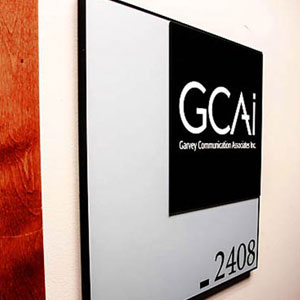Pouring Brand: Does Guinness Brew A Great Stout Or A Variety Beer?
 There’s no question, when I am in Ireland, my favorite beer is Guinness. Well, let me clarify that a bit, if I am in Dublin, my favorite is Guinness. If I am to the south, say in Cork, I am ordering a Murphy’s. And if I am in the west, I will be looking for a Galway Hooker…maybe I should rephrase that?
There’s no question, when I am in Ireland, my favorite beer is Guinness. Well, let me clarify that a bit, if I am in Dublin, my favorite is Guinness. If I am to the south, say in Cork, I am ordering a Murphy’s. And if I am in the west, I will be looking for a Galway Hooker…maybe I should rephrase that?
I guess that is my point. If I said Guinness to a barman, I would soon be served a pint of delicious stout – until recently. Guinness, owned by an international holding company, now makes a variety of beers. The dark larger has been out for a while and just recently they released Guinness Blonde “an American Lager.” I am sure they did their research, but to me, American lager suggests Bud, Miller, Coors, Pabst, and Schlitz. The news left me wondering – does the world really need another American lager?
Consumers run into this problem a lot. A company known for one thing, soon branches out into others. As in the Guinness example, the quest is to increase sales and therefore the strategy is to convince consumers that because we do this one thing well, these other things will be good too. The halo of that great product is thought to be able to hover over the new products as well or at least that is the hope of the brand. Through my experience with awesome startups at MassChallenge, I have learned that doing one thing really well is in their DNA. At some point though, the pressure to serve up more brews increases; more options, more sales, and more market share. In this scenario, specialization is scrapped and the pathway to growth becomes diversification.
Of course, sometimes these diverse product mixes have been tested and their appeal to individual customer segments validated. However, when the great product or service is forced to carry a number of okay product or services they all suffer. The goal of the brand remember is sales, nobody said anything about innovation, and that is how the brewer of a great stout brings to market a not so great beer (hint – I tasted Guinness Blonde).
So, let’s reexamine what made a lot of great companies great: specialization. Some other time we can discuss why they keep screwing with their success. Guinness should focus on making and exporting really great stout and perhaps a few natural offshoots like Smithwick’s. Google has a great search engine and advertising platform, but really stinks at social media. Facebook has built the world’s biggest social media platform, but as digital marketers, we would say the ad platform leaves a lot to be desired.
Remember the startup DNA – do one thing well? For most businesses, specialization offers significant advantages. Being really great at one or a few related things sets your company apart. Unique specialization is the antidote for commoditization. With a specialty, you are offering expertise, not a service. You are an expert not a vendor. Suddenly, you have more control over your market and your pricing because, if you do it right, you are relatively alone in your offering.
Even if you are already in a commoditized market, you can still specialize. Many companies differentiate themselves through their values. Employee engagement, commitment to the community, and being innovative are all potential twists to every day products and services that can set a business apart. Other companies diversify, but do so by shifting into even narrower vertical markets, knowing that the commodity markets they are leaving behind are shrinking already – going to the lowest priced competitor. The point is, make your products or services unique – and if you can, narrow them and specialize.
Digital marketing has opened the door to profound specialization opportunities. Content marketing provides you with a means to drive motivated customers to your door – whether that is a web-based portal or a real world store. Google AdWords responds specifically to your customers’ inquiries meaning that when your customers are looking for information on your service, your ad is right there. SEO PR stacks the web with a variety of benevolent content, so that customers – and media – can find out more about your specialty and how it will benefit them. Social media marketing can target interests, locations, and more – putting your expertise right in front of those who are looking to “like” it.
So, what do we really think of Guinness Blonde? After a taste test we can safely say, American does not need another “American lager!”




